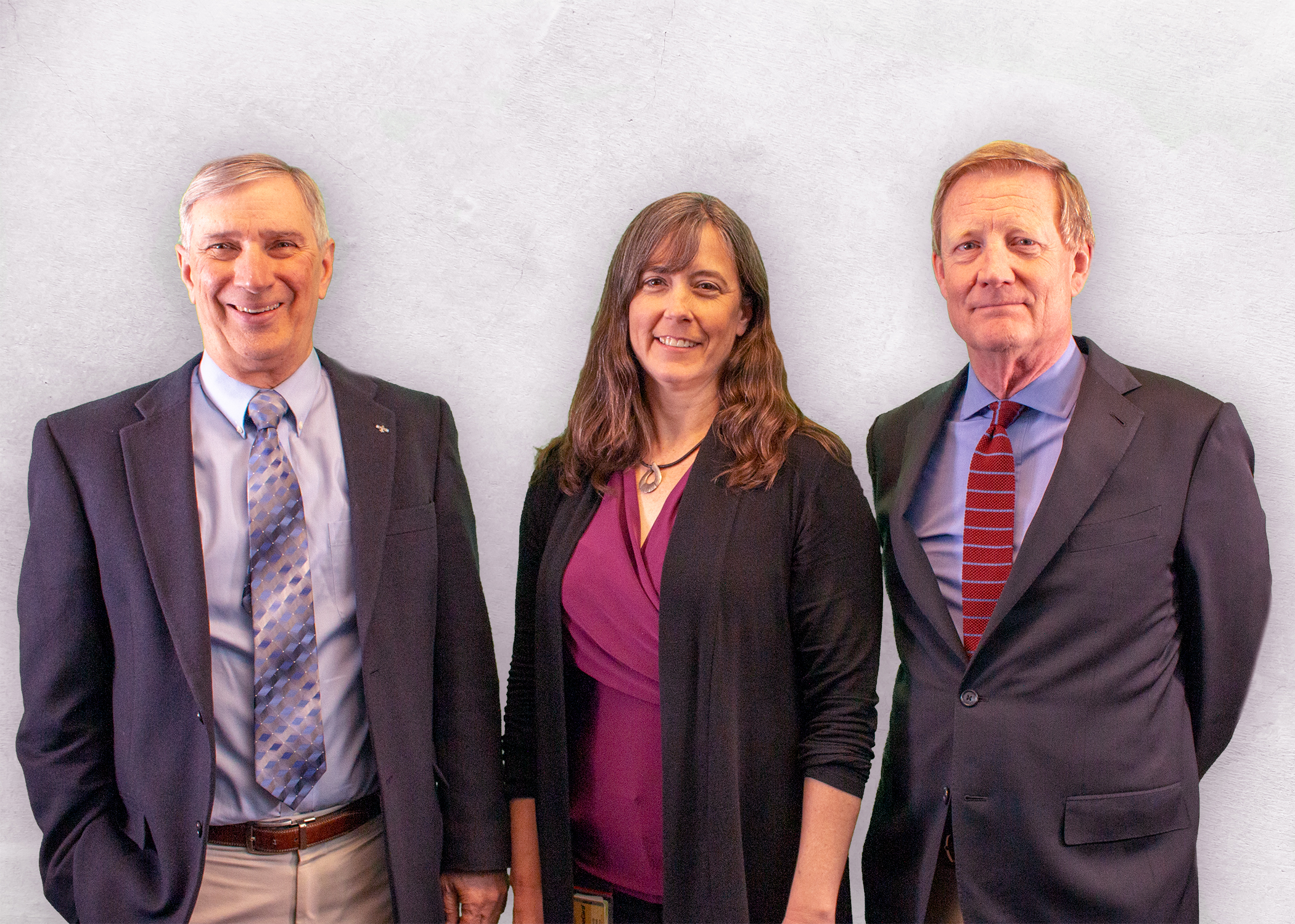Summary
A team in Treasury launched an initiative to fund most CU construction projects with Commercial Paper ("CP") -- short-term (1-270 days) promissory notes that are issued very close to when CU needs construction funds rather than borrowing all funds needed for a project at the beginning of the construction period. Average CP cost of borrowing has been 1.64% as opposed to 3.5% for longer-term borrowing. Furthermore, only the actual amount needed is borrowed. Their initiative reduces overall capital construction borrowing by $5-8 million per $100 million.
Submission Highlights
Team Information

Pictured Above:
- Dan J. Wilson, Treasurer
- Michelle Travis, Associate Treasurer for Operations
- Charles Cook, Associate Treasurer and Director of Liability Management
- University of Colorado System
Description
Beginning in June of 2018, we began funding most CU construction projects with Commercial Paper ("CP"). The Regents have authorized a CP program of up to $200 million outstanding; currently there is $85 million outstanding. CP are short-term obligations of between 1-270 days, that we issue very close to when we need funds for construction rather than borrow all the estimated funds needed for the project at the beginning of the construction period. See the attachment; CU has typically borrowed in month 1 for the entire project - with CP we will incrementally increase the amount outstanding until month 19-20 and then execute permanent financing to retire the commercial paper with long-term bonds. To implement the program, we sought short-term ratings in addition to CU's long-term ratings, are in the market multiple times a year, are required to provide monthly liquidity documentation to the rating services, and have adopted CP management policy to assure that the program is adequately supported and other cash needs of CU are not impacted.
How does this benefit the University?
Our average CP cost of borrowing since June 2018 is 1.64% rather than approximately 3.5% for longer-term borrowing. A review of CU borrowing for approximately $1 billion of projects from 2007-16 showed that approximately 7% of those borrowings were for interest during the construction period, which CP cuts by more than 50%. Secondly, during construction for a long-term construction borrowing, CU earns less on unspent balances by 1-2% than it costs to borrow -- "negative arbitrage". In FY14 & FY15, unspent bond proceeds totaled $240 and $230 million vs. $34 million in FY18. Thirdly, if CU borrows at the beginning of construction projects, it borrows, out of necessity, an additional 4-5% for unknown construction contingencies for each project. With CP, only the actual amount needed is borrowed, reducing unnecessary borrowing to assure completion of construction projects. Overall, we estimate that CP reduces overall borrowing by $5-8 million per $100 million borrowed for University capital construction projects.
Implementation/Future Plans
The CP program was introduced in the market in June of 2018 and has been ramped-up to $85 million outstanding so far this FY. We anticipate the total outstanding to reach $140 million by the end of FY19 before it is funded out in September of 2019. The Regents are being asked to include two new CP projects at their February meeting: Fleming Tower Renovation and Imig Music Building, both on the Boulder Campus, which total approximately $60 million. It is likely that a portion of the Anschutz Health Sciences Building of approximately $140 million will also be financed with CP in FY20-21. Commercial Paper in an ongoing process improvement to more efficiently finance capital construction.




